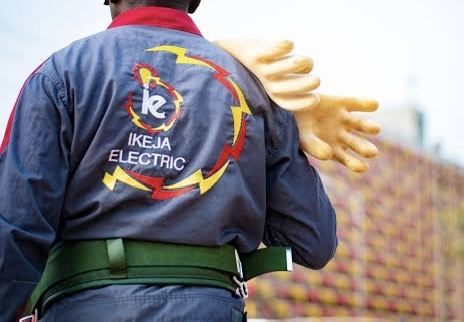KEY POINTS
- Residents of Odukoya Estate were disconnected for six days over a N2.1 million legacy debt they say does not belong to them.
- Ikeja Electric restored power only after tenants paid N200,000, despite the company failing to prove when or how the debt was incurred.
- NERC regulations state that old electricity debts cannot be transferred to new occupants, raising questions over IE’s handling of the matter.
Residents of a modest apartment block in Odukoya Estate, Lagos, have accused Ikeja Electric of plunging them into a week-long blackout after officials disconnected their supply over an outstanding bill they insist does not belong to them.
The sum in question, a hefty N2,175,662, was tied to abandoned meter accounts that predated the prepaid meters currently in use.
The disconnection lasted from 6 November until 12 November, forcing residents into several days without power as they attempted to challenge the bill and seek clarification from the utility company.
What they encountered instead, they say, was a maze of contradictory explanations, unresponsive officials and a demand for payment on a debt they neither incurred nor recognised.
Residents say they were forced to pay N200,000 for reconnection
The controversy began on 6 November, when Ikeja Electric officials visited the compound armed with a letter stating that three meter accounts linked to the property carried accumulated debts of N946,948, N695,869 and N532,845. Residents immediately pointed out that the account numbers on the letter bore no resemblance to the prepaid meters they had been using.
According to Chinwendu Okorodudu, one of the tenants, the officials insisted that the charges stemmed from older prepaid meters once installed in the building. Despite being unable to provide any timeline or consumption record for the accumulated debt, they disconnected power to the entire compound.
Residents said they were told the outstanding arrears must be cleared before reconnection could be considered, a position they found both unfair and unlawful. After four days without electricity, the tenants reluctantly paid N200,000 on 12 November, prompting Ikeja Electric to restore supply that same day.
Attempts to seek redress through the company’s official channels proved equally frustrating. Okorodudu, who visited Ikeja Electric’s main office in Ikeja, said she was instructed to return to the address listed on the disconnection letter and was not offered any intervention or explanation. Calls placed by the Foundation for Investigative Journalism to the Rapid Response Team officials assigned to Akowonjo also failed: one number did not connect, while the other had been barred from receiving calls.
When FIJ contacted Oba, an officer in IE’s debt management unit, he claimed that the disputed debt had originally been served two years earlier and remained unpaid by the building’s landlady. He confirmed that the account numbers differed from the current meters but asked that the residents visit the office to “check the system” if they wished to see the timeline of the debt.
The position of the Nigerian Electricity Regulatory Commission is unambiguous. Under its 2023 Consumer Protection Regulations, past debts tied to electricity consumption cannot be transferred to new occupants of a property. The rules state that only the customer who consumed the electricity is liable for the charges, and distribution companies must recover the debt from that individual rather than penalise new residents.
For the tenants of Odukoya Estate, however, the ordeal has left them facing pressure to settle a bill they maintain is not theirs, with no clarity from the utility on how or when the debt was accumulated.



